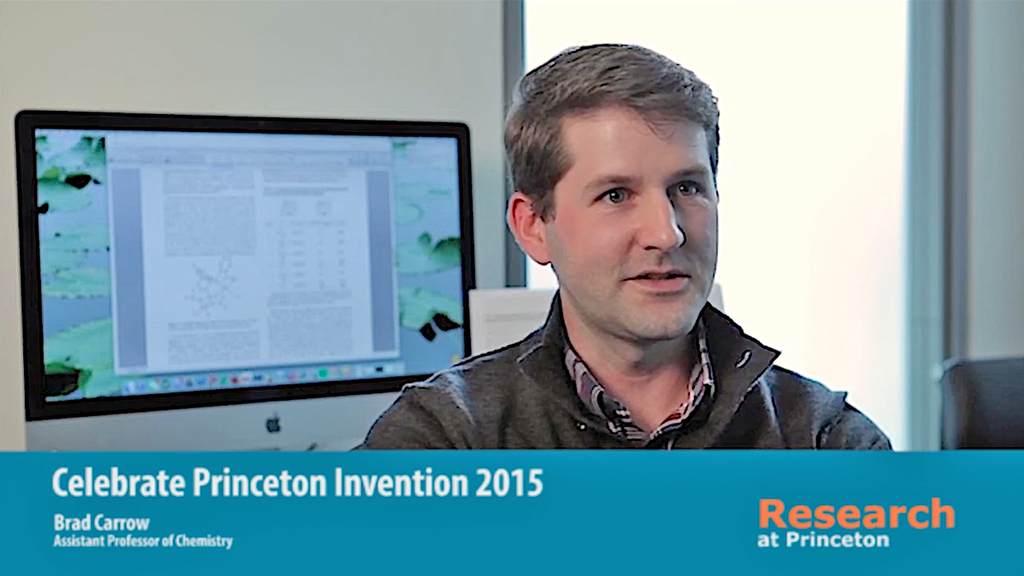Celebrate Princeton Invention 2015, Brad Carrow: New Catalysts for making better plastics
Invention New catalysts for making better plastics
Inventor Brad Carrow, Assistant Professor of Chemistry
What it does New highly efficient catalysts promote the formation of novel types of plastics with desirable qualities such as gas-barrier properties, adhesiveness, rigidity or heat resistance. Developed by Carrow and his research group in the Department of Chemistry, the catalysts could enable the rapid, low-cost and environmentally friendly production of new plastics for use in a range of applications.
The catalysts would allow manufacturers to fine-tune the properties of plastics by adding new chemical ingredients to make hybrid materials. Most plastics are made of long chains of identical chemical units known as polymers. By replacing a handful of those units with different chemical entities, researchers can engineer new properties into the materials. For example, by adding the occasional unit of acrylic acid (normally found in the absorbent interior of a baby diaper) to polymers of polyethylene (the plastic used for milk jugs), researchers can make an extremely hard plastic that is used in golf-ball covers.
To stick these chemical building blocks, or monomers, together, plastic manufacturers add in metal catalysts that speed up chemical reactions without being consumed. However, the commercial catalysts in use today are universally incompatible with industrial monomers such as acrylic acid and its derivatives.
In contrast, the catalysts developed by the Carrow team have been shown to be compatible with these acrylic monomers, operate under mild conditions, and generate new plastics with molecular shapes that are not possible via other methods. Carrow’s catalysts also are highly stable, so they churn out new plastic material for a longer period of time before needing to be replenished, and they perform well at high temperatures, an important consideration in the making of plastic materials on an industrial scale.
“We’ve invented a totally new class of catalysts that can create these hybrid materials in a way that is scalable and cost effective,” Carrow said. “We can create unique plastics that no existing commercial process can make, period.”
Collaborators Richard Register, the Eugene Higgins Professor of Chemical and Biological Engineering; Wei Zhang, former postdoctoral research associate in chemistry; Christian Padilla and Maggie Tiedemann, graduate students in chemistry; and Adam Burns, graduate student in chemical and biological engineering.
Development status Patent protection is pending. Princeton is seeking industrial interest for further development of this opportunity.
Funding sources Princeton Center for Complex Materials and the National Science Foundation.

